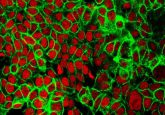Integrating genomic sequencing into pediatric cancer treatment could improve care

A study published recently in JAMA, authored by researchers from the University of Michigan (MI, USA), has reported that incorporating integrative genomic sequencing data into the management of relapsed or refractory cancer in children is viable and can lead to changes in treatment or genetic counseling. The results demonstrate the potential of personalizing clinical interventions to underlying genetic changes in this patient population, where survival remains poor for those with recurrent or metastatic disease.
In total, 104 children and young adults with relapsed, refractory or rare cancer participated in the study, with an average age of 11 years. Following the initial screening procedure, Arul M. Chinnaiyan (University of Michigan) and his team initiated integrative clinical exome and transcriptome sequencing, and genetic counselling procedures for all patients. Subsequent findings were discussed by a precision medicine tumor board, which made recommendations to patient’s families and their physicians.
Of the 104 patients who were screened, 102 enrolled and 91 had adequate tumor tissue for sequencing (89%) and thus were included in the calculations. Of the 91 patients, 31% had hematologic malignancies and 69% had solid tumors.
‘Actionable’ findings were reported in 42 patients, including 54% of those individuals with hematological malignancies and 43% of individuals with solid tumors. These actionable findings resulted in a change of cancer management. Based on the results of clinical sequencing, personalized interventions were taken in 23 patients (25%) overall, which included a change in treatment for 14 patients and a change in genetic counseling for 9 patients.
Ten percent of the personalized clinical interventions resulted in ongoing partial clinical remission of 8–16 months or helped to sustain complete clinical remission of 6–21 months. All 9 patients and families with actionable incidental genetic findings agreed to genetic counseling and screening, many of whom had no significant family history and would likely have not been referred to genetic counseling under routine clinical care.
Advances in genomic sequencing technologies have improved the ability to detect molecular aberrations with greater sensitivity in children and young adults. This has enabled us to identify genomic alterations that can be matched to targeted cancer therapies. However, integrating sequencing data into clinical management in an individualized manner has proven to be a continual challenge.
The findings have revealed that integrating sequencing data into pediatric cancer management is feasible and can lead to personalized clinical interventions to improve patient care. As a limitation of the study, the researchers note that the lack of a control group limited the assessment of whether better clinical outcomes resulted from integrative clinical sequencing.
Sources: Mody RJ, Wu Y-M, Lonigro RJ et al. Integrative clinical sequencing in the management of refractory or relapsed cancer in youth. JAMA. DOI: 10.1001/jama.2015.10080 (2015); The JAMA network press release





